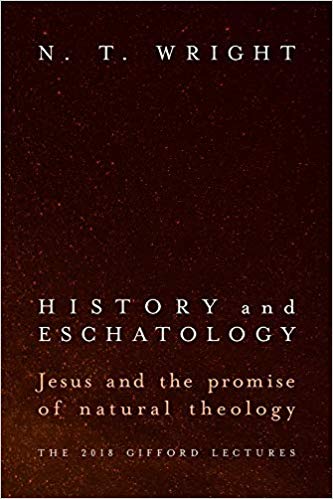 The arguments of this book are frankly too dense and too detailed to simply summarize chapter by chapter (though I tried in the previous post), so instead I’m going to focus on some of the main leitmotifs that are the driving forces of all the arguments of the book, one of which is that ancient Epicureanism is the grandfather of modern dualistic thinking about God and the world. On p. 12, Tom says the following: “Deists and Epicureans share the view, which has now become widespread in Western culture, that there is a great gulf between God (or the gods) and the world we live in…For the Epicureans, at least, the gods are made of atoms just like everything else, so they are the same sort of creatures as we are only completely separated from us. This contrasts with the mainstream view of Jews and Christians, and I think for Deists as well, for whom the referent of the word ‘God’ is different in kind from us, as well as in location, since God is believed to inhabit a different kind of space from ours, though one which overlaps and interlocks with ours. …For the Deist, there is one God, who made the world, the supreme watchmaker who set the machine running and keeps it well-oiled….For the Epicureans however, the gods have nothing to do with making the world, and they have nothing to do with its maintenance…. For some Deists, at least, God cares how we behave, and may eventually call us to account. For Epicureans however, and this has always been its main attraction…the gods don’t care and they won’t judge, so how we behave is up to us, and death dissolves us into nothingness.”
The arguments of this book are frankly too dense and too detailed to simply summarize chapter by chapter (though I tried in the previous post), so instead I’m going to focus on some of the main leitmotifs that are the driving forces of all the arguments of the book, one of which is that ancient Epicureanism is the grandfather of modern dualistic thinking about God and the world. On p. 12, Tom says the following: “Deists and Epicureans share the view, which has now become widespread in Western culture, that there is a great gulf between God (or the gods) and the world we live in…For the Epicureans, at least, the gods are made of atoms just like everything else, so they are the same sort of creatures as we are only completely separated from us. This contrasts with the mainstream view of Jews and Christians, and I think for Deists as well, for whom the referent of the word ‘God’ is different in kind from us, as well as in location, since God is believed to inhabit a different kind of space from ours, though one which overlaps and interlocks with ours. …For the Deist, there is one God, who made the world, the supreme watchmaker who set the machine running and keeps it well-oiled….For the Epicureans however, the gods have nothing to do with making the world, and they have nothing to do with its maintenance…. For some Deists, at least, God cares how we behave, and may eventually call us to account. For Epicureans however, and this has always been its main attraction…the gods don’t care and they won’t judge, so how we behave is up to us, and death dissolves us into nothingness.”
Wright goes on to chronicle how these related world views (related in that they want to evacuate or eliminate divine interference from the natural world and the world of human history) have shaped subsequent intellectual movements in the west, kicking into high gear from the Enlightenment on. He stresses “All these things go together; politics without God, science without God, economics without God, history without God, and finally Jesus without God. All of them take for granted a kind of uber-Reformation: against the corruption, not only of the medieval church, but of the church in general, and traditional Christianity as a whole.. All these movements studied the world and acted in the world on the assumption that the world makes itself as it goes along, without divine interference.” He goes on to cite Hume’d critique of ‘miracles’ and says “the mood of the times was with him. Ever since, anyone in the Western world who believes in miracles has been swimming upstream.” (p. 21). In short, the development of the Enlightenment involved a revival of Epicureanism. But the Enlightenment was to give birth to a new idea— the notion of progress in human history, paralleled by the notion of upward evolution in Darwinian approaches to the origin and development of living things. This led to strange phrases like ‘you want to be on the right side of history’ as if history had a mind of its own, purposes of its own, and was developing towards a goal. If however studying past history tells us anything, it is that empires rise and fall, ideas rise and fall, trends come and go, and the notion of inevitable inherent progress towards some utopia is a myth. At this point global climate change is more likely to lead to the exclamation “apres moi, l’deluge”. That’s hardly progress.
The discussion ends with an affirmation that love is a means, indeed the most intimate means of knowing the Other, and it is a means ruled out by the Enlightenment which sought dispassionate ‘objectivity’ Love overcomes the false polarization between objective and subjective and between the Idealist and Empiricist world views (p. 38).












